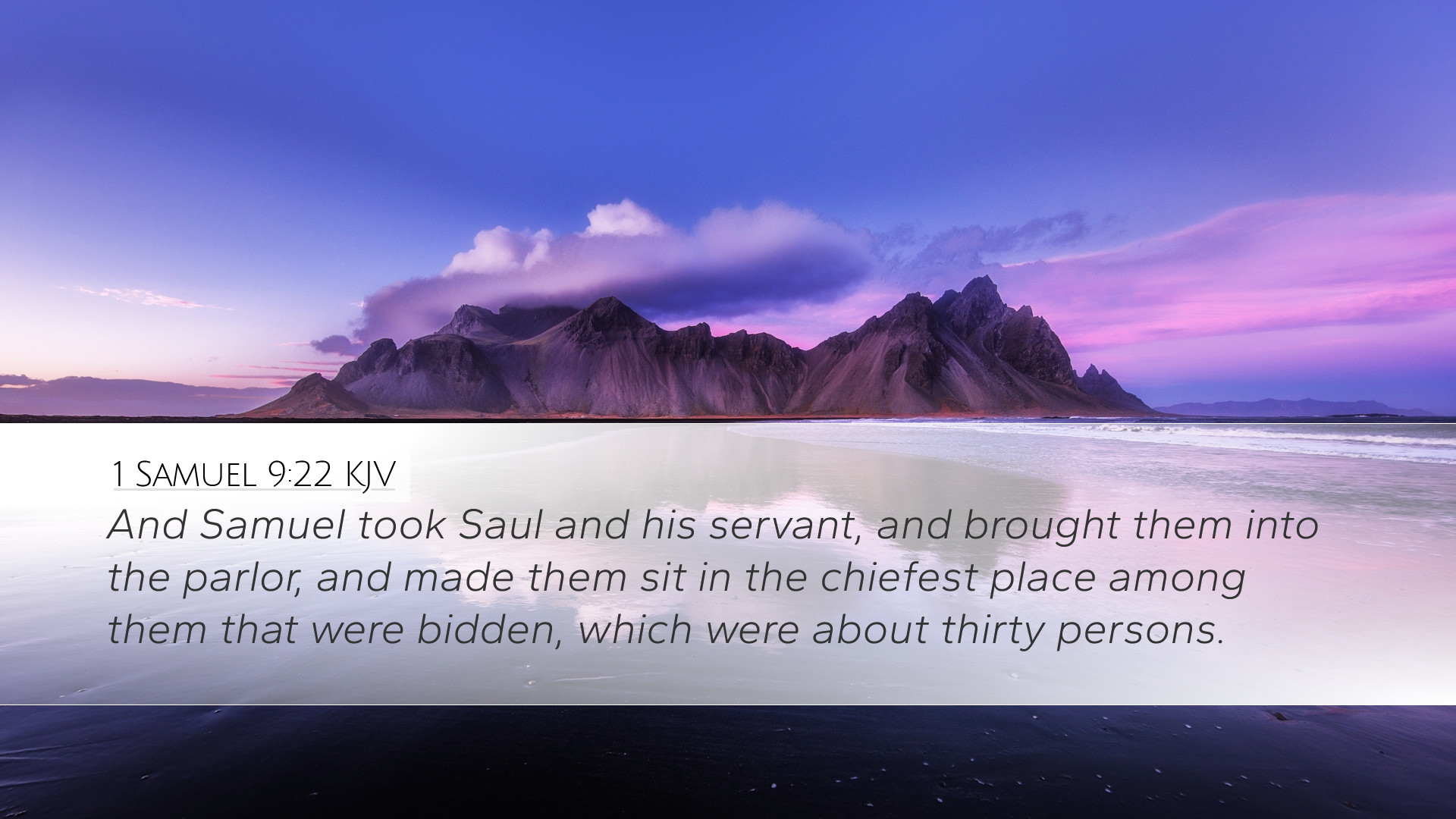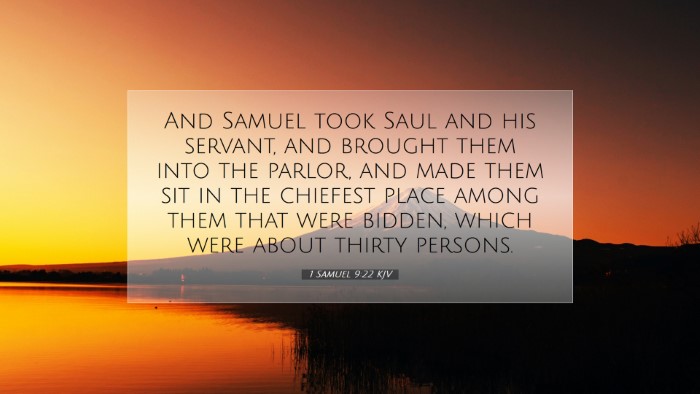Commentary on 1 Samuel 9:22
Verse Context: 1 Samuel 9:22 states, "And Samuel took Saul and his servant, and brought them into the parlour, and made them sit in the chiefest place among them that were bidden, which were about thirty persons." This verse is pivotal in the narrative of Saul's anointing and reflects the divine orchestration at play in the events leading to the establishment of the monarchy in Israel.
Historical Background
Matthew Henry outlines that this chapter sets the stage for God’s selection of Saul as king of Israel, initiated by the Israelites’ demand for a monarch to lead them like the nations around them. This request came after a long history of judges leading the people, but a definitive transition to monarchy was foreshadowed in this critical moment.
Sacred Providence
Albert Barnes emphasizes God’s providence over the events that led Samuel to meet Saul. The intricacies of their encounter signal a divine purpose and selection. Samuel, acting under divine guidance, prepared to communicate God’s message to Saul, which was a significant turning point in Israel’s history. How God orchestrates all things, even the loss of donkeys, to lead to this monumental occasion demonstrates the sovereignty and meticulous planning of the Almighty.
The Significance of the Banquet Setting
The social and ritual implications of the banquet, as described by Adam Clarke, cannot be overstated. By placing Saul and his servant in the prominent position at the feast, Samuel signified Saul’s impending role as leader. The act of inviting them to dine with the other guests infused the moment with honor and significance. Clarke argues that such actions by Samuel manifest the gravity of Saul's future responsibilities and mark the divine selection of Saul in front of other leaders.
The Call to Leadership
According to Matthew Henry, Saul’s elevation from a humble background as a farmer to a leader of Israel is a profound illustration of God’s ability to choose unlikely candidates for great tasks. This theme resonates throughout Scripture, where God often employs individuals with no apparent qualifications. It urges pastors and theologians to consider the implications of God’s call in their own ministry and leadership contexts.
Understanding Divine Selection
Albert Barnes furthers this thought by suggesting that the call to leadership comes not from man but from God. Saul’s introduction in this well-structured setting illustrates divine preferment rather than human ambition. This narrative encourages those in ministry to remain humble and receptive to God’s leading, reminding them that leadership is ordained by God’s sovereign choice.
The Role of Honor and Recognition
Adam Clarke analyzes the cultural significance of seating arrangements in the ancient Near East, where honor and respect were assigned based on social hierarchy. By seating Saul in the chief place, Samuel not only acknowledges Saul’s future role but also demonstrates a public recognition of the choices made by God. This serves as an important reminder for congregational leaders to honor God's chosen leaders in their communities.
Application for Modern Leaders
In the modern context, church leaders are called to scrutinize how they recognize and affirm those selected by God for leadership. Matthew Henry often advocates for the acknowledgment of God’s hand in personal and communal leadership decisions, emphasizing the necessity for prayer and discernment when appointing leaders. It invites a spirit of humility and trust in God’s provision within pastoral leadership.
Conclusion
The narrative found in 1 Samuel 9:22 is rich with insights that resonate through the ages. It teaches about the nature of God’s providence, the importance of honoring divine selections, and the need for humility in leadership roles. Whether for a pastor, student, theologian, or Bible scholar, the lessons from this passage are invaluable. As God chooses and situates leaders for His purposes, may all who engage in ministry seek to mirror this divine orchestration, always pointing to the One who calls and equips His servants.


